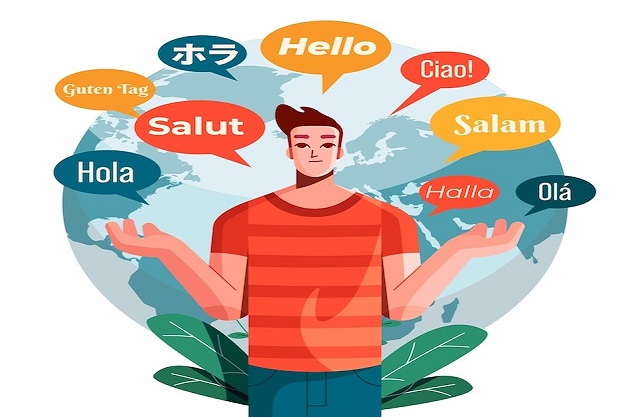Localisation Services
The Rise of Localization Industry: Key Trends and Drivers
Localization services refer to the process of adapting products or content to meet the linguistic, cultural, and other requirements of specific regions or countries. This involves translating content into different languages, adapting it to suit local cultural norms and preferences, and ensuring that it meets legal and regulatory requirements in different regions.
The localization industry includes a range of services such as translation, software localization, website localization, multimedia localization, and cultural consulting. The industry is highly competitive, with many companies offering specialized services to cater to different industries and markets.
Localization services are essential for companies that want to expand their operations globally and communicate effectively with customers and partners in different countries and regions. By localizing their products and content, companies can ensure that they are accessible and appealing to local audiences, which can help them to build strong relationships and increase their market share in different regions.

Localization services are commonly used in industries such as software development, e-commerce, marketing, and media. Examples of localized content include websites, software applications, marketing materials, and multimedia content such as videos and audio files.
The process of localizing content typically involves several stages, including translation, cultural adaptation, and quality assurance. Localization companies may use a combination of human translators, machine translation, and other technologies to ensure that the content is accurate, culturally appropriate, and meets the client's specifications.
The localization services industry has been growing steadily over the years, and this growth is expected to continue in the future. The localization industry refers to the process of adapting products or content to meet the linguistic, cultural, and other requirements of specific regions or countries.
The growth of the localization industry can be attributed to several factors. One major factor is the increasing globalization of business, which has led to a rise in the demand for localization services. As companies expand their operations globally, they need to communicate effectively with customers and partners in different countries and regions, and localization services are crucial in ensuring that they can do so.
Another factor contributing to the growth of the localization industry is the increasing demand for content in different languages. With the rise of the internet and social media, there is a growing need for content that can be understood by people who speak different languages. Localization services are essential in making sure that this content is accessible to people in different regions of the world.
Furthermore, advancements in technology have also played a significant role in the growth of the localization industry. Machine translation, artificial intelligence, and other technologies have made it easier and more efficient to localize content, making it possible for companies to reach more customers in different regions.

Growth of Localisation industry
1. Globalization As businesses expand their operations globally, the need for localization services has increased. Companies are looking to reach customers in new markets and need to communicate with them in their native language to be successful.
2. Increasing internet usage The internet has made it easier for businesses to expand their reach into new markets, and localization services are essential for companies to effectively communicate with their global audiences.
3. Mobile devices The growth of mobile devices has further increased the demand for localization services. Mobile apps, games, and websites must be localized to cater to different regions, languages, and cultures.
4. Technology advancements Machine translation, artificial intelligence, and other technologies have made it possible to automate parts of the localization process, reducing costs and turnaround times.
5. Multilingual content creation The rise of social media, video streaming, and other digital platforms has created a need for multilingual content creation. Localization services are required to ensure that this content is accessible to audiences in different regions.
How to Choose the Right Localization Services
Choosing the right localization services can be a critical decision for businesses looking to expand their reach in global markets. Here are some factors to consider when choosing the right localization services:
1. Expertise Look for localization companies that have experience in your industry and market. This will ensure that the company understands the nuances and cultural sensitivities of your target audience.
2. Quality Quality is essential in localization services. Look for companies that have quality assurance processes and certifications such as ISO 9001 or ISO 17100 to ensure the highest level of quality.
3. Technology Technology is crucial in localization services, and the right localization company should use the latest translation and localization software to ensure accuracy and efficiency.
4. Linguistic capabilities The right localization services should have a team of professional linguists who are native speakers of the target language and have experience in the relevant industry.

5. Cultural expertise Cultural sensitivity is essential in localization services, and the right localization company should have a team of cultural experts who can ensure that your content is culturally appropriate and relevant.
6. Customer service Look for companies that have excellent customer service and are responsive to your needs.
7. Pricing Pricing is an essential factor in choosing the right localization services. Look for companies that offer competitive pricing while maintaining high-quality standards.

Challenges In Localisation Industry
The localization industry faces several challenges that can impact the quality and efficiency of localization services. Here are some common challenges faced by localization companies:
1. Cultural and linguistic nuances: One of the biggest challenges in localization is understanding the cultural and linguistic nuances of the target audience. The localizer must be familiar with the cultural norms, language styles, and idiomatic expressions to provide accurate and culturally appropriate translations.
2. Technical compatibility: The localization of software applications, websites, and multimedia content can be challenging due to technical compatibility issues. The localizer must ensure that the localized content functions correctly and is compatible with the target platform.
3. Time and cost constraints: Localization can be time-consuming and expensive, especially for large-scale projects. Meeting tight deadlines and budgets can be challenging while maintaining quality.
4. Human resource management: Managing a team of linguists, cultural experts, and project managers across different time zones and locations can be challenging. Effective communication and project management are critical to ensure the timely delivery of high-quality localized content.
5. Machine translation limitations: While machine translation has improved significantly in recent years, it still has limitations in accurately capturing the nuances of language and culture. Human translators are still essential for ensuring accuracy and cultural sensitivity.
6. Legal and regulatory compliance: Localized content must comply with legal and regulatory requirements in different regions, which can be challenging to navigate, especially for highly regulated industries such as healthcare and finance.
In summary, the localization services industry is expected to continue growing as businesses continue to expand globally and the demand for content in different languages continues to increase. The localization industry faces several challenges, including cultural and linguistic nuances, technical compatibility, time and cost constraints, human resource management, machine translation limitations, and legal and regulatory compliance. Overcoming these challenges requires a combination of expertise, technology, and effective project management to deliver high-quality localized content.
Leave Us A Comment
